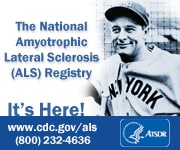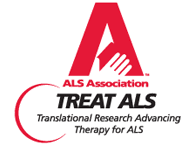Or perhaps the government is moving without thinking past its fiefdoms.
"The Committee is particularly supportive of the addition of a biorepository component and the development of strategies that can enhance clinical trials and clinical trial enrollment."
It appears that the CDC's ATSDR, the "owner" of the important ALS Registry project, is ready, able, and willing to take on scope creep that will enhance its budget and footprint, and could ultimately take its eyes off of the core mission of providing complete epidemiological data on ALS cases.
In the past few months we have seen how broken the process of getting good clinical trial information to patients is. Having the ALS Registry do an expensive push of information to potential patients won't fix the root problems. It will only add another problem.
Can someone in our government step back and look at the bigger picture? Can someone in our trusted ALS organizations step back and take on a more difficult problem than appropriations for a Registry project? Can someone in our clinical healthcare delivery system take on some responsibility for getting information to patients in a consistent, timely manner?
It doesn't take a Six Sigma Black Belt to figure out that we have a very broken process and taping expensive band-aids on it won't fix it. Who will take on the problem statement (that may leave a little egg on the faces of some in the current process to get information to patients)? Anyone?
Here are just a few of the process concerns that have jumped out to me as I've watched patients take clinical trial recruitment into their own hands in order to fill the Neuraltus NP-001 clinical trial.
- Are patients relying on their neurologists for guidance on whether a clinical trial is a good idea and on which clinical trials hold the most "promise?"
- Are patients getting that information from their neurologists?
- Are members of our ALS organizations' staffs who deal with patients knowledgeable at least on the phase 2 and 3 clinical trials within 500 miles of their locations?
- Are patients and families being led down wrong paths by the proliferation of websites that say they have clinical trial information (but carry information that is incomplete or outdated)?
- Do patients and families know that the most dependable source of clinical trial information is www.clinicaltrials.gov?
- Has anyone talked to HHS about putting a nicer, more friendly gui on www.clinicaltrials.gov so that patients could do things like a zip code search for nearby clinical trials?
- Would a better gui on www.clinicaltrials.gov eliminate the need for redundant websites that are provided for a number of medical conditions?
- Do some neurologists discourage patients from clinical trials? Why?
- Can patients in clinical trials have a formal feedback process that would provide better trial design for the next drug candidates?
- Can the 24-month-from-onset "rule" be revised based on the results of the recent 36-month-from-onset trial?
- Does the CDC's Registry even have onset date (which would seem to be required for any kind of matching of candidates to clinical trials)?
- What are the results of the recently introduced NEALS/ALSA Clinical Trial Expert?
Many of us complain about the length of time that it takes the FDA to evaluate and approve new drugs; however, every day wasted in filling a clinical trial is as critical in the timeline as an FDA day. We definitely have a problem in getting good information to eligible patients in a manner in which they can make informed decisions quickly. To add an expensive feature to a Registry that has its own problems getting people to self-enroll isn't going to solve the problem. We need to step back and look at all of the possible factors and fix some of the problems at the root. Throwing Registry money at this problem will not fix a broken process.
My plumber can offer to fix a structural defect in my home, but that's probably not a good way to really fix the problem.









